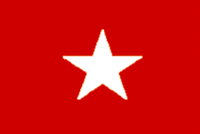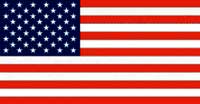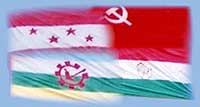National Peace Campaign, a non-governmental organisation, organised a workshop in Pokhara and Kathmandu in January on the theme "Domestic Armed Conflict and Peace Building" involving leaders of major political parties, political scientists and scholars.
They included people like Krishna Khanal of the National Peace Campaign, conflict resolution expert Shivahari Dahal, Chakra Bastola and Narhari Acharya of the Nepali Congress, Jhalanath Khanal and Yubaraj Gyawali of the UML, Roshan Karki of the RPP, Sarita Giri of the Sadbhavana Party, Narayan man Bijukchhe of the NMKP, Pari Thapa of the RJM, Srikrishna Aniruddha Gautam of the Democratic Congress.
The findings of the workshop have not yet been made public, but it includes a SWOT analysis of five key actors (both internal and external) in the Nepal conflict and their interests. Summarised below are the results of their brainstorming.
 MAOISTS
MAOISTS
Immediate demands
Round Table Conference
Interim government
Constituent Assembly
Ultimate goal
People's Republic
Interests
Immediate: To share power
Ultimate: To overthrow the present regime
Needs
Philosophically guided
Ideologically oriented
Politically motivated
Power
Disruption
Violence and coercion
Inadequate to bring about total change
Adequate to get partial demands fulfilled
Strong Points
Organised manipulation of information
Mobilisation of youth and women
Organisation and management of militia/guerrillas
Successful disinformation
Use of terror and panic to subdue opponents
Collection and management of financial resources  INDIA
INDIA
Strengths vis-?-vis Nepal
Geographical location
Cultural/Ethnic/Linguistic affinity
Open border
Dependence on trade and transit
The status offered by the 1950 treaty
Nepalis in its army
Strong aspects
Direct access with the monarchy
Contact and relations with Nepali parties and leaders
Social relations (marital/academic)
Position
Political stability in Nepal
For multiparty democracy and constitutional monarchy
Commitment for support, including military
Friendly to all forces
Maoist insurgency domestic affair, but ready to offer any kind of assistance
Declared Maoists terrorists even before Nepal did
Interests
To maintain strategic dominance in Nepal
Economic: Water resources and trade
Needs
To prevent conflict getting out of hand
To maintain its influence
To always maintain its indirect presence
To prevent use of the Nepali soil against India  KING
KING
Position
For constitutional monarchy
Publicly in favour of multiparty system
Democrat
Interests
Seeking active role
Keen interest in preserving power
Gain internal and external support
Needs
Sideline political parties and reduce their role
Militarisation of the state
To make the monarchy popular and effective
Enhance clout of monarchy through diplomatic means
Strengths
Immaturity and weakness of political parties
History and tradition
Traditional control of army
Support of external factors  UNITED STATES
UNITED STATES
Position
Support multiparty democracy and constitutional monarchy
Conflict resolution through dialogue
Threat to list Maoists as terrorists
Interests
To use Nepal's geo-political situation for its strategic interests
To maintain a favorable system/government
To try to increase its technical/political influence on military through assistance
To balance all of above without jeopardising interests with India
Needs
To keep vigil over China
Growing interest in South Asia
Strengths
An image of a defender of democracy
To work as India's ally vis-?-vis China and Pakistan
China can't do too much to oppose this because of its own economic and trade competition with India  POLITICAL PARTIES
POLITICAL PARTIES
Position
To move towards progressive reforms by protecting the achievements of the People's Movement
Interest
Restoration of the parliament/elections)
Needs
Set up a popularly accountable government
Agreement between political parties in dissolved parliament
Restoration of peace
A functioning constitution
Immediate government with parties in last parliament
Strengths
Commitment to democracy
Popular support
Philosophical consensus among the parties
International opinion in favour of multiparty democracy


